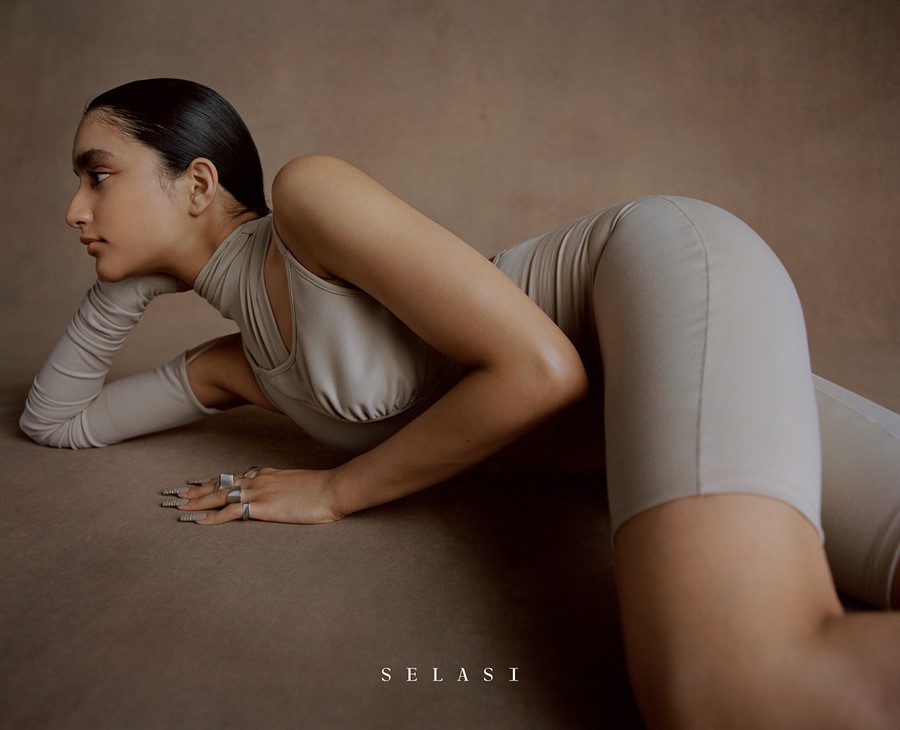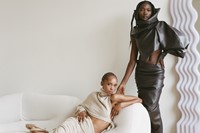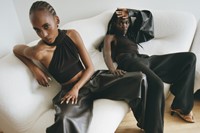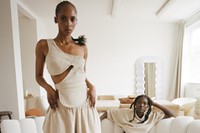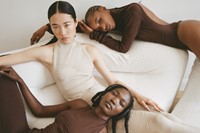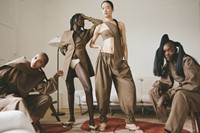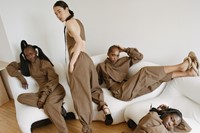Born in lockdown, the project is photographer Ronan Mckenzie’s exploration of the power that wearing garments brings
- Who is it? Selasi is a London-based personal project founded by photographer Ronan Mckenzie
- Why do I want it? The meeting point of femininity and power, minimal, sculptural silhouettes are created in a restricted palette that pays homage to the designer’s skin tone
- Where can I find it? Online at selasi.co from autumn
Who is it? Thanks to the big C-word, last year’s imposed lockdown forced the world at large to grind to a shuddering halt. With little to no work in fashion, photographer Ronan Mckenzie turned her hands to design as an outlet for her creativity. “We couldn’t leave the house or do anything, so I had bags and bags and bags of time,” she tells AnOther. “We have a sewing machine at home and my partner was going to make something, so I jumped on the bandwagon and really enjoyed the process. It was such a different practice to photography being able to put my hands to a piece of fabric as opposed to it being just visual.”
Proud of her creations, she began sharing images on Instagram, and Selasi – meaning “God hears me” in the Ghanaian language, Ewe – was born. More of a personal project than a brand, the photographer sees it working in tandem with HOME, the multifunctional creative space she launched at the end of last year. “I’m not focused on selling clothes, I want it to be a holistic overview and explore the breadth of garments, where they sit and how they intersect with our lives,” she muses. The all-encompassing approach becomes clearer through Mckenzie’s visual curation, with the clothes appearing alongside tonal home settings or crashing waves.
Despite demands from celebrities, stylists, and followers (this writer included), the photographer didn’t want to give in to the fashion system of selling and loaning before figuring out what she wanted out of it first. In fact, it’s almost a year after her first post that she’s now releasing the first official collection – teaming up with other creatives including Wesley Harriott, footwear designer Marko Baković, and knitwear wizard Khanh Brice Nguyen. “To be honest, Selasi is entirely selfish,” she reflects. “I can do whatever I want and only my opinion matters. I don’t think I had anything like that in my life like that, so I want to hold on to that for as long as I can with this project and maintain that integrity.”
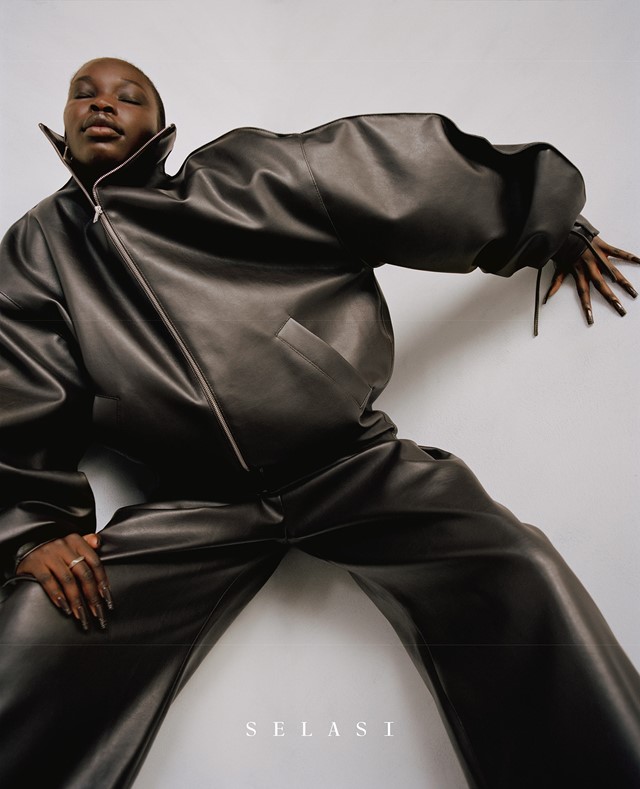
Why do I want it? Scrolling through Selasi’s Instagram feed is like rifling through a mouthwatering chocolate box. The minimal, sculptural designs act almost as an extension of the body, hugging and accentuating the figure or puffing out to create extra volume and emulate strength.
Working with stretch jersey, stiff linen, and vegan leather, the colour palette is even more restrained – occasionally white, but mostly shades of brown: from deep chocolate to sandy tan – chosen specifically by Mckenzie. “I knew I wanted to make brown clothes because they’re really hard to find, especially deeper, darker browns so I wanted to find fabrics that were close to my complexion,” she explains. Celebrating the skin you’re in is explored further via thermal knits created in collaboration with KBN Knitwear which puckers in places to emulate keloid scarring on melanated skin.
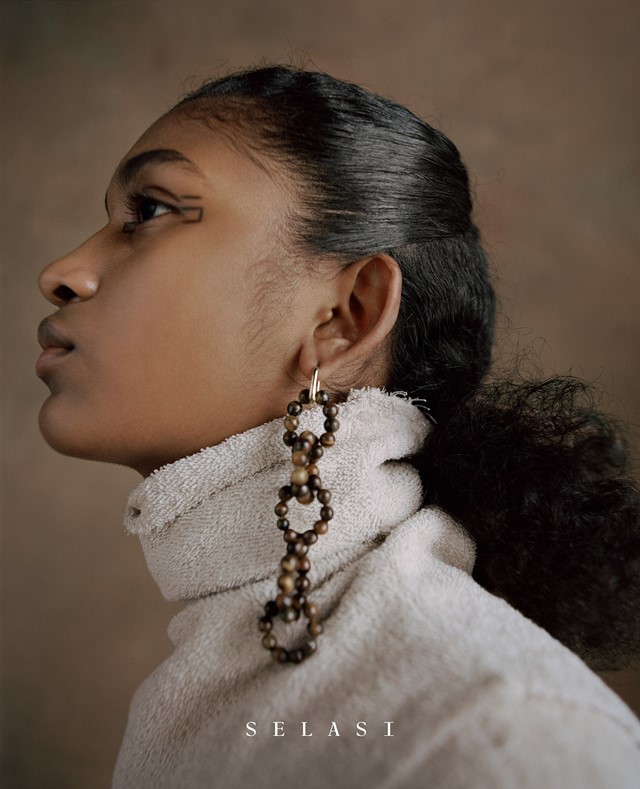
Naturally, the debut collection’s accompanying imagery is as diverse as the shades within it and gave Mckenzie a rare opportunity to step from behind the camera and collaborate with her peer Nadine Ijiwere. “I wanted to open up the conversation and see what other Black women think about the clothes and how they see them, so it was a great experience and I really respect her vision,” she says.
Maintaining a dialogue with the project’s collaborators and future customers – custom orders will be available in the autumn – is the way that the photographer will continue to grow Selasi and bring that feeling of empowerment, regardless of race. “I enjoy wearing clothes by designers of colour and I feel powerful when I am, so that’s ultimately what I want to convey with Selasi,” she concludes. “I want people to know when they’re wearing it that they’re wearing our history, in the same way that I can’t hide that I’m Black when I walk into a room. The body and whatever garments are on it collaborate to create whatever the person wants to say or feel. That’s what I’m looking forward to, seeing what people make of it.”
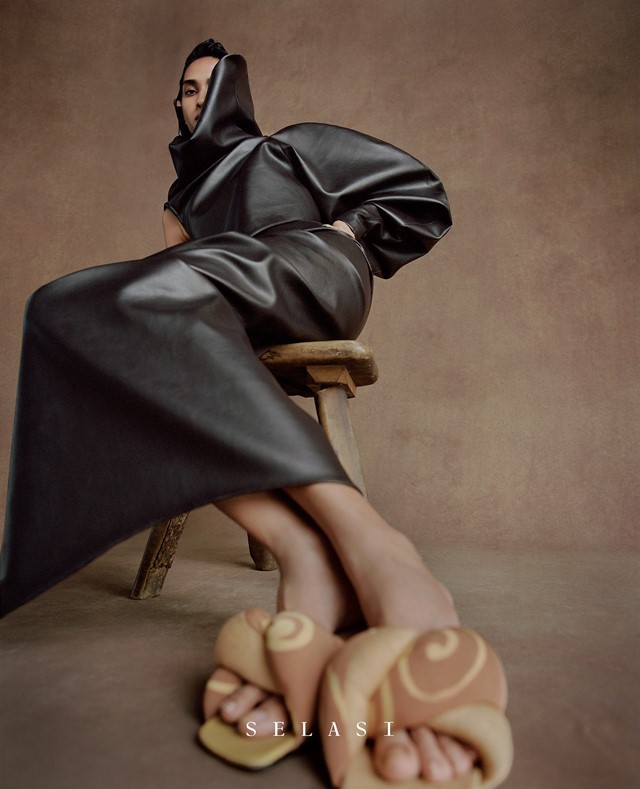
Where can I find it? Available online at selasi.co this autumn.
